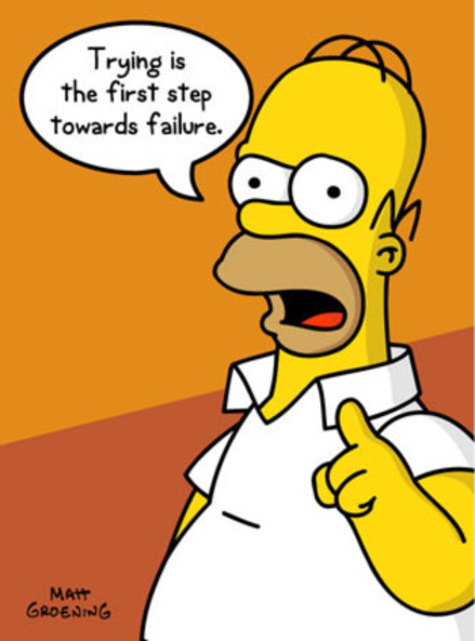Some interpreted my last post (about finding technical co-founders) as advice to “do nothing” — to wait until the stars align to start working on an idea. And in a way, that is what I’m suggesting. But that observation is really part of a larger picture of how a fully functioning entrepreneurial ecosystem works. In such a system, both ideas and businesses are born from personal relationships. However, outside of a few niche industries in a few niche geographies, these ecosystems do not (yet) exist. What then?
Start With What You Have
You may know I am a big fan of Dr. Saras Sarasvathy, the entrepreneurship researcher (now at University of Virginia’s Darden School of Business). Her clear-eyed analysis of the entrepreneurial process suggests that entrepreneurship is a behavior and a process. She believes that entrepreneurs are made, not born. And I absolutely agree with her.
The last thing she would suggest that an entrepreneur do is “wait” before taking action. Instead, she suggests that all entrepreneurship is a series of successive “small bets” — specific kinds of bets, with “affordable” downsides and higher, or possibly even uncapped upsides. By participating in this process, the entrepreneur actually changes the world around them and influences the success of their later activity. In short, they begin to mitigate the risks of their own bets, enhancing the upside and lowering the downside of the entire entrepreneurial process.
And this is exactly how entrepreneurship works. In this model, you never “wait around” — you start right away, taking successive small risks, and then going from there.
Doing It Right (and Wrong is OK too)
Matt Mireles wrote in on the last post to express his objection that he felt that I was suggesting that folks “never even try to get off the ground.” And I realized that wasn’t my intent at all.
Matt wrote (among many other thoughtful comments):
At least in the stall spin you have altitude to lose! Your advice seems to be “don’t even try to get off the ground.” This bothers me.
Who cares if you throw the prototype out? Who cares if you switch from PHP to Rails? That’s all sunk costs. The only thing that matters is that you make progress, build the team and get customers.
…
Case in point: SpeakerText. My original co-founder built the site in PHP and the app in Flash. The product kind of sucked, but there were some cool features, it got the idea across and we used it to get some good press. He ultimately wasn’t ready to commit and we did the whole stall spin thing you describe (although we parted ways amicably and he still helps out from time to time). Burned through some cash, our angel round imploded, etc.
Matt’s experience, of working with mercenary developers, getting it wrong, losing some cash and probably also causing a certain amount of misery in the process, is not uncommon. And it’s perfectly awesome. It’s exactly what entrepreneurs should be doing, which is failing early and failing often! Think of the lessons that he’s now learned!
Does this contradict my other advice? Not at all. Because Matt did one key thing that victims of the “stall spin” never do, which is to control their downside risks. Matt lived to tell the tale. In flying terms, he gave himself enough altitude to live through the stall spin and recover; his willingness to learn from mistakes and his awareness of what he didn’t know made it possible for him to live, where most people die.
And that’s really what the last post is all about: how to avoid making fatal mistakes by aligning common interests, which is (in effect) a way of capping downsides.
I promised a follow-up post about finding technical cofounders, which will further explore what a functioning ecosystem looks like. But here’s a preview to ponder: in functional startup ecosystems, you see more alignment of interests, risk taking with capped downsides, and strong pre-existing relationships (by way of meshed social networks). Can’t wait to share those ideas with you.
In the meantime, take Dr. Sarasvathy’s advice and start now. Just control your downside risks, learn from failure, and know what you don’t know! And meet lots of people who can help you along the way. You’ll do great things!


3 comments ↓
I thought the moral of the story is that Step 1 of your entrepreneurial life is not to have an idea and start a company. Step 1 starts way before that as you lay the groundwork for starting a company by creating an ecosystem around yourself that is conducive to success.
Are you part of the start-up activity going on in your town or did you wait until you needed it. Are you building relationships with future sales guys, engineers, product people, angel investors, whatever, or are you planning to wait until you need them?
Odds of success go way down if you aren't out there today.
Start now.
Sounds like a conversation we just had…thanks for the time.
Mel
I've loved the last two posts, so thank you for your thoughts. Since you haven't written the post yet on the search for a technical co-founder, I thought I'd add my two cents and ask if you could address the challenge from the perspective of someone who really has no pre-existing relationships in the technical arena. I know this isn't what you would consider an ideal approach to starting a web business, but I know there are a lot of budding entrepreneurs out there who nevertheless find themselves in this position, and who would definitely profit from your advice. Thanks again.
You must log in to post a comment.